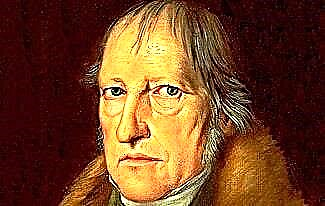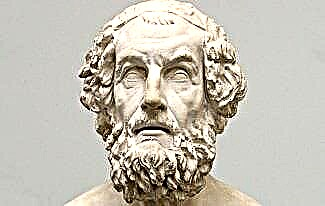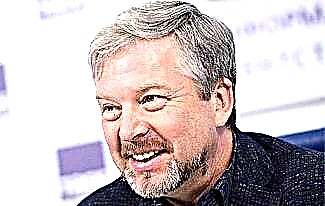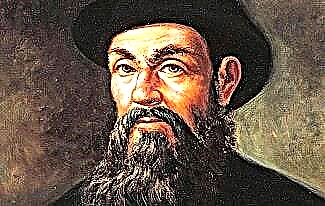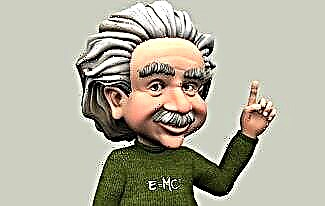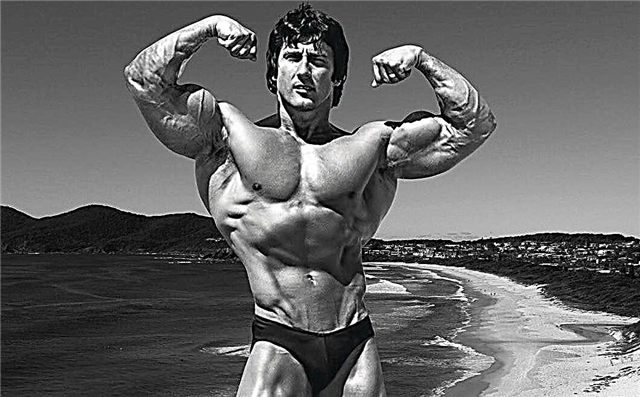Albert Einstein (1879-1955) - theoretical physicist, one of the founders of modern theoretical physics, Nobel Prize laureate in physics (1921). Honorary Doctor of about 20 leading universities in the world and a member of a number of Academies of Sciences. He spoke out against war and the use of nuclear weapons, calling for mutual understanding between peoples.
Einstein is the author of over 300 scientific papers in physics, as well as about 150 books and articles related to various fields. Developed several significant physical theories, including special and general relativity.

There are many interesting facts in Einstein's biography, which we will tell about in this article. By the way, pay attention to the materials related to Einstein:
- Interesting facts and funny stories from the life of Einstein
- Selected Einstein quotes
- Einstein's riddle
- Why Einstein showed his tongue
So, before you is a short biography of Albert Einstein.
Einstein's biography
Albert Einstein was born on March 14, 1879 in the German town of Ulm. He grew up and was raised in a Jewish family.
His father, Hermann Einstein, was a co-owner of a small feather filling factory for mattresses and feather beds. Mother, Paulina, was the daughter of a wealthy corn merchant.
Childhood and youth
Almost immediately after Albert's birth, the Einstein family moved to Munich. As a child of non-religious parents, he attended a Catholic elementary school and until the age of 12 was a fairly deeply religious child.
Albert was a reserved and uncommunicative boy, and also did not differ in any success in school. There is a version according to which in childhood he did not have the ability to learn.

The evidence cites the low performance that he showed in school and the fact that he started walking and talking late.
However, this point of view is disputed by many of Einstein's biographers. Indeed, the teachers criticized him for his slowness and poor performance, but this still does not say anything.
Rather, the reason for this was the student's excessive modesty, ineffective pedagogical methods of that time, and the possible specific structure of the brain.
With all this, it should be admitted that Albert did not know how to speak until the age of 3, and by the age of 7 he had barely learned to pronounce individual phrases. An interesting fact is that even in childhood, he developed such a negative attitude towards the war that he even refused to play soldiers.
At an early age, Einstein was deeply impressed by the compass his father had given him. It was a real miracle for him to see how the compass needle always showed the same direction, despite the turns of the device.
His love for mathematics was instilled in Albert by his own uncle Jacob, with whom he studied various textbooks and solved examples. Even then, the future scientist developed a passion for the exact sciences.
After leaving school, Einstein became a student at a local gymnasium. The teachers still treated him like a mentally retarded student, due to the same speech defect. It is curious that the young man was interested only in those disciplines that he liked, not striving to get high marks in history, literature and the study of German.
Albert hated going to school, because he believed the teachers were arrogant and domineering. He often argued with teachers, as a result of which the attitude towards him worsened even more.
Without graduating from the gymnasium, the teenager moved with his family to Italy. Almost immediately, Einstein tried to enter the Higher Technical School located in the Swiss city of Zurich. He managed to pass the exam in mathematics, but failed botany and French.
The rector of the school advised the young man to try his hand at a school in Aarau. In this educational institution, Albert managed to get a certificate, after which he still entered the Zurich Polytechnic.
Scientific activity
In 1900, Albert Einstein graduated from the Polytechnic, becoming a certified teacher of physics and mathematics. It is worth noting that none of the teachers wanted to help him develop his scientific career.
According to Einstein, teachers disliked him because he always remained independent and had his own point of view on certain issues. Initially, the guy could not get a job anywhere. Without a stable income, he often went hungry. It happened that he did not eat for several days.

Over time, friends helped Albert get a job at the patent office, where he worked for a fairly long period of time. In 1904 he began to publish in the German journal Annals of Physics.
A year later, the journal published 3 outstanding works of the physicist that revolutionized the scientific world. They were devoted to the theory of relativity, quantum theory and Brownian motion. After that, the author of the articles gained immense popularity and authority among colleagues.
Theory of relativity
Albert Einstein was most successful in developing the theory of relativity. His ideas literally reshaped scientific physical concepts, which were previously based on Newtonian mechanics.
It is worth noting that the structure of the theory of relativity was so complex that only a few people understood it in full. Therefore, in schools and universities, only the special theory of relativity (SRT) was taught, which was part of the general one.
It spoke about the dependence of space and time on speed: the faster an object moves, the more distorted both its size and time.

According to SRT, time travel becomes possible under the condition of overcoming the speed of light; therefore, proceeding from the impossibility of such travels, a limitation is introduced: the speed of any body is not able to exceed the speed of light.
At low speeds, space and time are not distorted, which means that in such cases the traditional laws of mechanics apply. However, at high speeds, distortion becomes noticeable to be proven by scientific experiments.
It is worth noting that this is only a small fraction of both special and general relativity.
Albert Einstein was repeatedly nominated for the Nobel Prize. In 1921 he received this honorary award "For services to theoretical physics and for the discovery of the law of the photoelectric effect."
Personal life
When Einstein turned 26, he married a girl named Mileva Maric. After 11 years of marriage, serious disagreements arose between the spouses. According to one version, Mileva could not forgive the frequent betrayal of her husband, who allegedly had about 10 mistresses.
However, in order not to get divorced, Albert offered his wife a cohabitation contract, where each of them was obliged to perform certain functions. For example, a woman has to do laundry and other duties.

An interesting fact is that the contract did not provide for any intimate relationships. For this reason, Albert and Mileva slept separately. In this union, the couple had two sons, one of whom died in a mental hospital, and the physicist did not have a relationship with the second.
Later, the couple nevertheless officially divorced, after which Einstein married his cousin Elsa Leventhal. According to some sources, the man was also fond of Elsa's daughter, who did not reciprocate.

Albert Einstein's contemporaries spoke of him as a kind and just person who was not afraid to admit his mistakes.
There are many interesting facts in his biography. For example, he almost never wore socks and did not like brushing his teeth. For all the genius of the scientist, he did not remember simple things, such as telephone numbers.
Death
In the days before his death, Einstein's health deteriorated sharply. Doctors discovered he had an aortic aneurysm, but the physicist did not agree to the operation.
He wrote a will and said to his friends: "I have fulfilled my task on Earth." At this time, Einstein was visited by the historian Bernard Cohen, who recalled:
I knew that Einstein was a great man and a great physicist, but I had no idea about the warmth of his friendly nature, about his kindness and great sense of humor. During our conversation, it was not felt that death was near. Einstein's mind remained alive, he was witty and seemed very cheerful.
Stepdaughter Margot recalled her last meeting with Einstein at the hospital with the following words:
He spoke with deep calmness, about doctors even with a light humor, and waited for his death as an upcoming "phenomenon of nature." How fearless he was in life, how quiet and peaceful he met death. Without any sentimentality and without regret, he left this world.
Albert Einstein died in Princeton on April 18, 1955 at the age of 76. Before his death, the scientist said something in German, but the nurse could not understand the meaning of the words, because she did not speak German.

An interesting fact is that Einstein, who had a negative attitude towards any form of personality cult, forbade lavish burial with loud ceremonies. He wanted the place and time of his burial to be kept secret.
On April 19, 1955, the funeral of the great scientist was held without wide publicity, which was attended by just over 10 people. His body was cremated and his ashes scattered in the wind.
All rare and unique photos of Einstein, see here.


